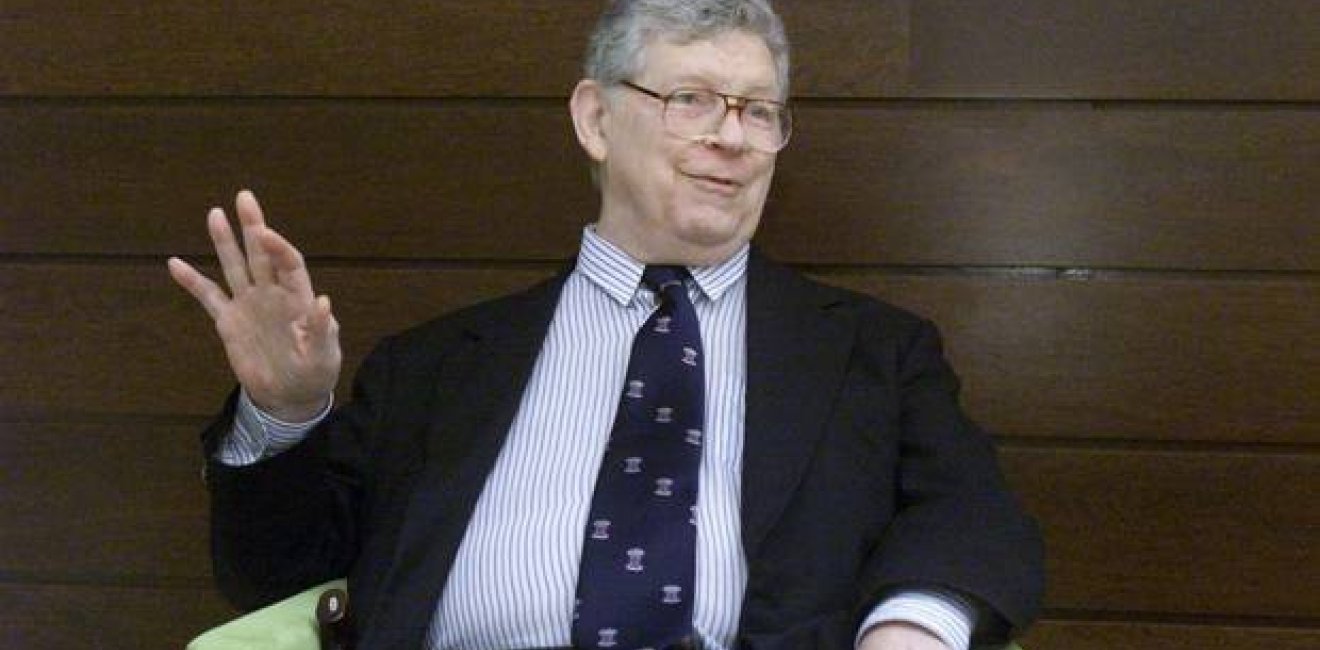The Wilson Center mourns the passing of Thomas E. Skidmore
The Wilson Center mourns the passing of Thomas E. Skidmore
The Wilson Center mourns the passing of Thomas E. Skidmore

The Brazil Institute and the Latin American Program of the Woodrow Wilson International Center for Scholars mourn the passing of historian Thomas E. Skidmore. Skidmore was a member of the Latin American Program’s founding Academic Council. He was one of the original members of the Brazilianists generation of American scholars who studied Brazil in the aftermath of the Cuban Revolution of the late 1950s, Skidmore was focused on modern Europe research after completing graduate studies at Oxford and Harvard, from which he received a doctoral degree in 1960. The following year he moved to Rio de Janeiro with his British wife Felicity on a three-year post-doctoral grant from Harvard to conduct research on the country’s recent history and guide policy makers on how to prevent another Cuba. His timing could not have been better. He arrived in August 1961, on the day President Janio Quadros resigned unexpectedly from office, plunging the nation into a crisis that would lead three years later to a military regime that ruled Brazil until 1964. “I am a son of Fidel,” Skidmore would joke years later. His first and most important book, Politics in Brazil, 1930-64: An Experiment in Democracy, appeared in 1967. It was published two years later in Portuguese as Brasil, de Getúlio a Castelo: 1930-1964 and has had fourteen editions.
Dr. Skidmore was named Associate Professor of History at University of Wisconsin, Madison, in 1967 and became Full Professor the following year. In that position, he led the university’s Latin American Studies, one of the country’s largest at the time and edited the Luso-Brazilian Review. While teaching at Wisconsin, Skidmore spent a sabbatical year in the early 1970s as a Wilson Center Fellow to work on a book of race relations in Brazil. Black Into White: Race and Nationality in Brazilian Thought was published in 1974. He authored five major books and numerous book chapters and scholarly journal articles.
After twenty years at Madison, Dr. Skidmore was named the Carlos Manuel de Céspedes Professor of Modern Latin American History and Professor of Portuguese and Brazilian Studies at Brown University, in Providence, Rhode Island. For a decade he directed the university’s Center for Latin American Studies (now the Center for Latin American and Caribbean Studies) before retiring in 1999. Skidmore was a member of the Executive Board of the Latin American Studies Association from 1968-1973, the President of LASA in 1972, and the President of the New England Latin American Studies Association. In recognition of his contribution to Brazilian studies and of his role as mentor of generations of Brazil scholars, in 2006 Brazilian Studies Association honored him with their first Lifetime Contribution Award.
Dr. Skidmore died at home Saturday June 11, in Westerley, Rhode Island, where he had moved in 2009. He was 83.
--

The Brazil Institute—the only country-specific policy institution focused on Brazil in Washington—aims to deepen understanding of Brazil’s complex landscape and strengthen relations between Brazilian and US institutions across all sectors. Read more


The Wilson Center’s prestigious Latin America Program provides non-partisan expertise to a broad community of decision makers in the United States and Latin America on critical policy issues facing the Hemisphere. The Program provides insightful and actionable research for policymakers, private sector leaders, journalists, and public intellectuals in the United States and Latin America. To bridge the gap between scholarship and policy action, it fosters new inquiry, sponsors high-level public and private meetings among multiple stakeholders, and explores policy options to improve outcomes for citizens throughout the Americas. Drawing on the Wilson Center’s strength as the nation’s key non-partisan policy forum, the Program serves as a trusted source of analysis and a vital point of contact between the worlds of scholarship and action. Read more
